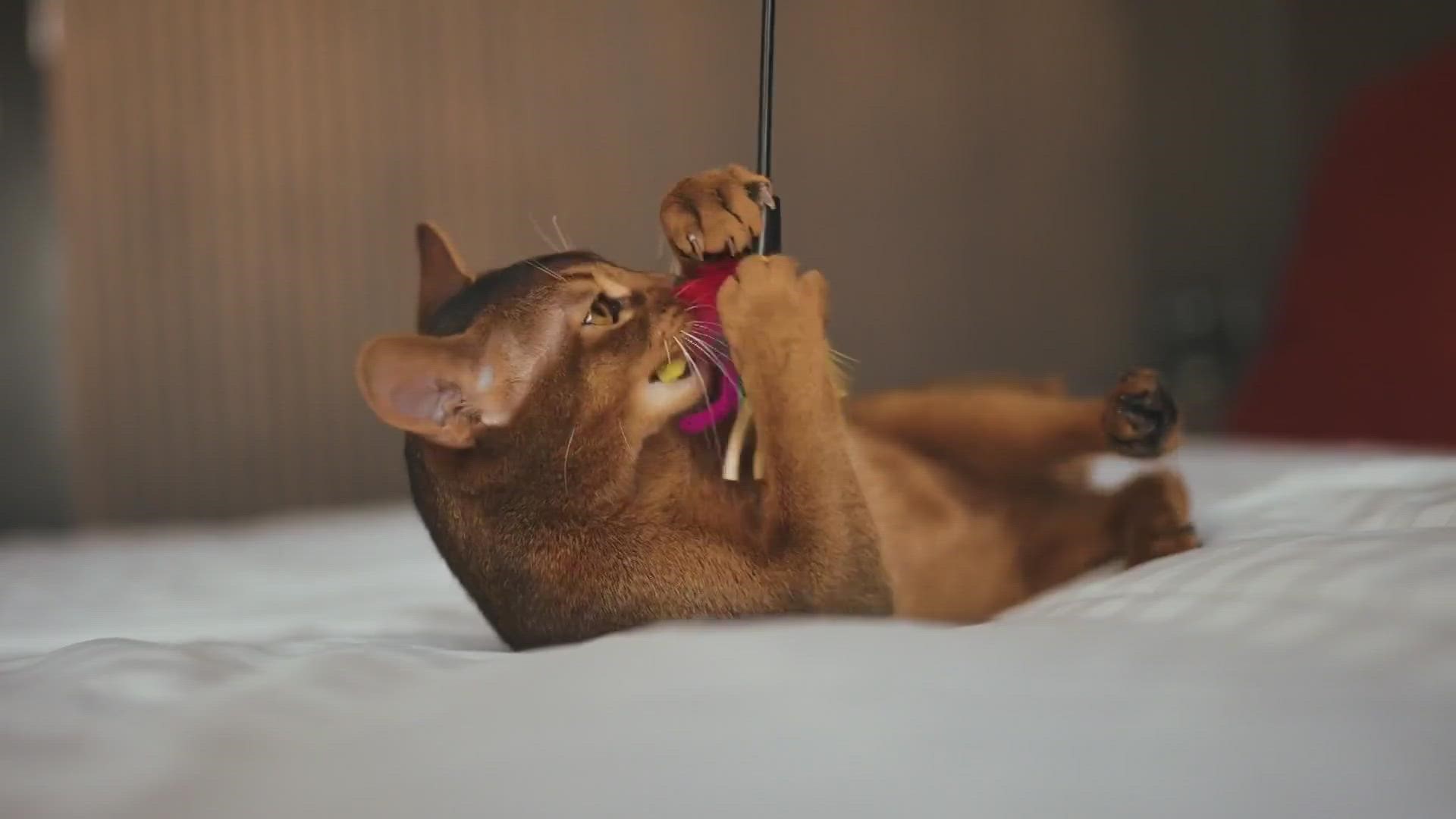PHOENIX — It's one of those peeves about pets: The cat's tearing up the furniture.
Animal rights advocates in Arizona want to ban what they say is a painful cure - declawing your cat.
"It's effectively an amputation," Dr. Christine Kreutzfeld said in an interview at the Arizona Humane Society shelter in Sunnyslope. "Declawing a cat is like amputating the tip of every finger."
The result for the cat could be chronic pain and long-term behavioral issues, like biting instead of scratching, or not using the litter box, because the cat can't scratch at the litter.
"Down the road that would make it hard for an owner to manage ... or just let their cats live harmoniously in an instinctual way with them," Kreutzfeld said.
For the second consecutive year, Democratic State Rep. Amish Shah has introduced bipartisan legislation to ban declawing by veterinarians. And for a second time, the legislation has stalled, under pressure from the Arizona Veterinary Medical Association.
"An owner should have the option ... to be able to opt for a declaw instead of surrendering or euthanizing their cat," a lobbyist for the association named Susie Stevens said at a hearing on a separate declawing bill last year.
"We talk about gruesomeness, well a spay can be gruesome, a neuter can be gruesome and frankly most surgeries are rather gruesome if we just think about what it looks like."
A committee hearing on the current bill scheduled for Monday was postponed.
Shah, who is an emergency room doctor, has reintroduced the legislation, HB2738, minus a requirement that veterinarians seek regulators' approval for therapeutic declawing in case of illness, injury or disease.
Across the country, declawing is being delisted as a veterinary procedure:
- The country's largest providers of veterinary care - Banfield Pet Hospitals and VCA Animal Hospitals - don't declaw cats.
- The American Veterinary Medical Association discourages it.
- Two states - New York and Maryland - have banned it. So have several cities, including Los Angeles, Denver and St. Louis.
The procedure can cost more than $1,000 and isn't covered by most pet insurance.
Declawing has fallen so far out of favor that Kreutzfeld, a recent veterinary school graduate, was never taught how to do it.
"In my formal education, we didn't even talk about it," she said. "It was one of those things that, you know, we'll acknowledge it, it's out there, but we're not encouraging you to learn how to do it or do it."
During a hearing last year on Shah's bill, a retired veterinarian named Wayne Anderson said some cat owners might not be able to get their clawed cats to the vet for a nail trim.
He also said the description of cutting off a cat's toes was "very inflammatory."
Up to Speed
Catch up on the latest news and stories on the 12News YouTube channel. Subscribe today.

